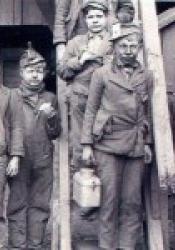The Factory Act of 1833
Because of the rise of the Industrial Revolution, factories and mills sprung up all throughout Great Britain. Unskilled workers from the countryside, as well as immigrants, flocked to the factories for work. Many of these workers were children who would labor in dirty and dangerous jobs for little pay. The three most common employers of children during this era were the textile mills, and coal mines, and many others found employment as chimney sweeps in London and other major cities. Child labor became an overarching issue in the early 1800s due to a lack of effort to improve working conditions by the upper class. In 1833, the Government passed a Factory Act to improve conditions for children working in factories. Young children were working exceedingly long hours in workplaces where conditions were often terrible. The laws detailed in this act were:
- no child workers under nine years of age
- employers must have an age certificate for their child workers
- children of 9-13 years to work no more than nine hours a day
- children of 13-18 years to work no more than 12 hours a day
- children are not to work at night
- two hours schooling each day for children
- four factory inspectors appointed to enforce the law
Though this was step in the right direction, the mistreatment of child workers did not cease. Young children were still forced to work under terrible conditions. Safety regulations for these factories were scarce, but the children still worked in order to provide for their families.
Although I hired her towards the end of my time in this realm, I am profoundly glad Miss Lucy had decided to come work as my Nurse-Companion. I know she was desperate for work and I couldn’t bear the thought of that girl having to work in the mines or something else of the sort. I heard rumour of a young boy dying on my road while working as a chimney sweep. Working on a three-story home, he must have tripped on the roof and fallen to his death. He was only twelve years of age. My heart aches for his family. It is a very dark day when a mother loses a child. It is perhaps the worst tragedy a person could face. I hope now that boy, I believe his name to be Henry, finds peace in heaven alongside my beloved Frank. I can only pray that Lucy does not befall the same fate after my passing. She is a kind soul, and I would hate to see her hurt, just for a spot of money. I will arrange for her to be allotted a sum of money after my death, so that she does not turn to physical labor in these terrible conditions. Hopefully she will be able to find a job as a governess once I’m gone from this world.
Price, Paxton. “Victorian Child Labor and the Conditions They Worked In.” Victorian Children, 2013, victorianchildren.org/victorian-child-labor/.
Tuttle, Carolyn. “Child Labor during the British Industrial Revolution.” EHnet, eh.net/encyclopedia/child-labor-during-the-british-industrial-revolution/.

